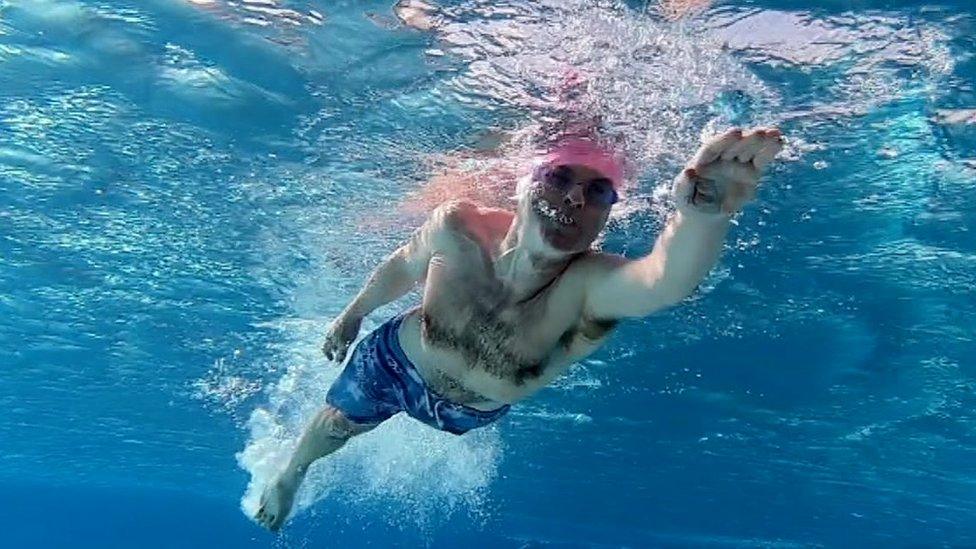Cold water swimming: what is the safest way to do it?
- Published
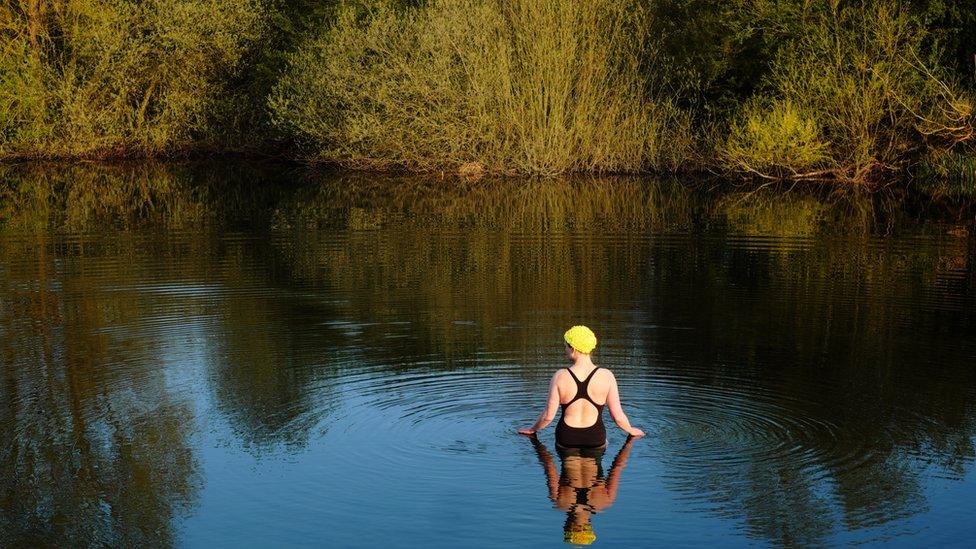
Taking a dip in cold water or going for a bracing outdoor swim can boost mental and physical health.
At least that's what people have believed for many years.
It's an activity that is becoming increasingly popular with professional athletes and the general public alike.
In a new BBC one show, Freeze the Fear, extreme athlete Wim Hof, a long-time aficionado of cold water, puts stars through a series of challenges in sub-zero temperatures.
The reality show has medical advisors on hand and everyone undergoes checks.
But there can be serious risks when cold water swimming.
Just last week, a 39-year-old woman died after reportedly immersing herself into a river in Derbyshire as part of a cold water therapy session.
So what is the safest way to take a dip or go for a cold water swim? Why do people do it, and what evidence is there of the benefits?
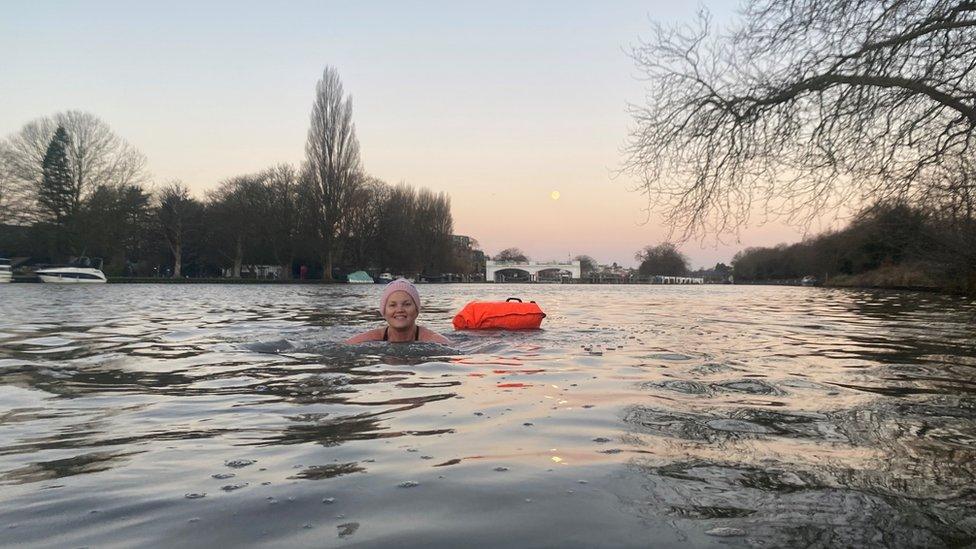
On some swims - particularly in the Thames - Dinah tries to stay near the bank
Dinah Sershi 51, a well-being coach in London, has been taking part in open water swimming for the past seven years.
It began one summer and Dinah says she quickly became "addicted to it". More recently, she has started swimming in the winter too.
"You feel a buzz. The effects are really euphoric," she says.
According to Dinah, one of the greatest benefits is the sense of community.
"You become intensely connected to the people around you, in terms of friendships and support - but also to nature," says Dinah.
"When you are swimming in open water you are not just surrounded by nature, you are in it."
Like many of her friends, she says she has also noticed a significant improvement to menopausal symptoms.
"When your brain feels foggy - as if it is going slower than your body, for example - all those feelings clear when you come out of the water," she says.
For people considering taking up the activity, Dinah recommends doing your research, respecting the water and knowing your limits.
Potential benefits
Anecdotally, many individuals share Dinah's view that taking a dip in cold, open water brings a host of benefits.
Some reports suggest cold water swimming can relieve depression, others claim it can help overcome grief.
There is even early research investigating whether it can help slow down dementia. And some reports suggest cold water swimming may help with chronic pain.
Other factors - like the exercise involved and the immense feeling of achievement - may well play their part in the benefits.
Prof Mike Tipton, from the University of Portsmouth - who has been studying the impact of cold water immersion on the body for more than 30 years - says evidence suggests the "rush" and "euphoria" many people experience is triggered, at least in part, by the sudden release of stress hormones as their bodies react to the cold.
But while there are lots of theories about the potential benefits - as well as many positive personal accounts - he says pinning down exact biological mechanisms, to prove the health benefits, has not been easy.
There is no established scientific consensus on the benefits, says Prof Tipton.
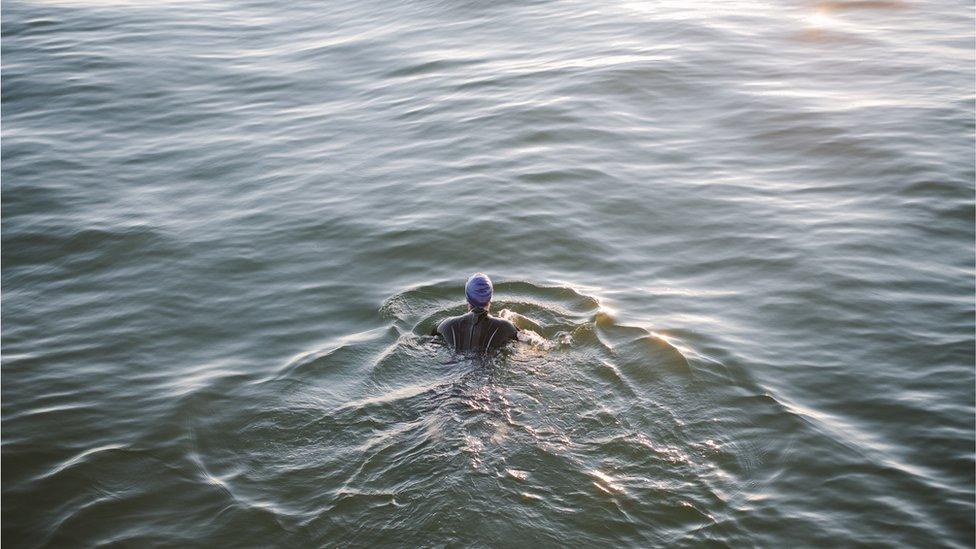
According to the Outdoor Swimming Society, external - a growing group of people united by their love of outdoor swimming around the world - the first step is being aware of the risks.
The second is "learning to love the cold".
According to the Royal National Lifeboat Institution (RNLI), the average UK and Ireland sea temperature is just 12 degrees, external.
And rivers, such as the Thames, tend to be colder - even in summer.
But the RNLI warns the effect on the body of entering water of 15 degrees or below is "often underestimated".
When our bodies are subject to a sudden drop in temperature - particularly 15 degrees and under - it can provoke a stress response. And this triggers a huge number of biochemical and physical changes, almost immediately.
'Cold water shock'
Harmful changes to breathing and circulation can happen in those first, crucial minutes after entering cold water.
Prof Tipton says this so-called 'cold water shock' is responsible for many cold water deaths each year in the UK.
One of the most potentially dangerous moments is that involuntary gasp for air, which often happens as our bodies are first submerged in the cold water.
If underwater at this point, even the most experienced swimmers can automatically inhale water. And it doesn't take much water in the lungs to drown.
Once people have overcome the initial, involuntary gasp, the next thing they may notice is their rising heart rate.
The blood vessels that serve the outer extremities of our bodies, such as our hands and feet, tend to narrow in response to cold - to try to reduce heat loss through the surface of the skin.
This means our blood pressure can go up too.
Prof Tipton says this can be particularly troublesome for some people, such as those with previously unknown heart problems.
Sometimes hearts can go into an irregular rhythm, or even stop.
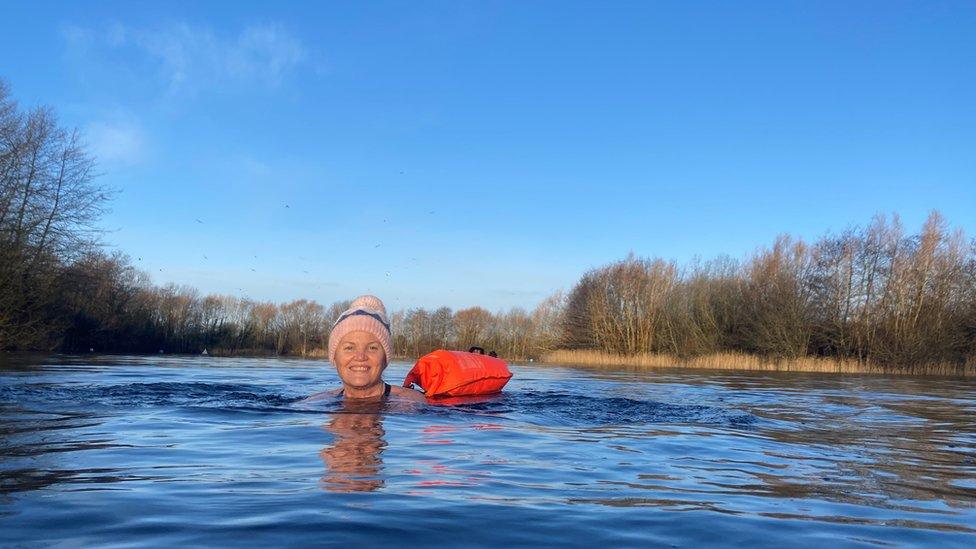
Being visible to other river users can be very important for safety
How can you stay safe?
One thing to remember, according to Prof Tipton, is the initial effects of cold water tend to pass quickly - within one to two minutes.
So it is important to maximise your chances of getting through those first few minutes.
The professor's research shows knowledge and preparation are crucial - as those who anticipate the 'cold water shock' are better able to control their breathing in response.
His team has shown that the more people become accustomed to immersing their bodies in cold water, the weaker any shock response tends to become.
"But that doesn't take away the risks completely," he warns.
"It can be dangerous - and it is important to approach it in the same way you would approach other things that can be potentially dangerous.
"It is worth getting a health check, treating it with caution, and going with a recognised group," he says.
In addition, he recommends entering the water gradually and not going out of your depth.
If you are planning an open water swim, experts advise:
Checking the weather - consider first taking up the pursuit when it is warmer
Go with others who have experience of cold water swimming
Make sure you establish a way of calling for help if you need it
Immerse yourself in the water gradually
Wear a wetsuit
Float for the first few minutes and wait for the cold shock to pass and for you to regain control of your breathing
Consider swimming near the shore, at least initially, and plan where you will get out of the water
Your body can continue to cool down once out of the water so consider getting out before you are in too much discomfort
Have a towel, dry clothes and a hot drink ready to help you warm up
The Outdoor Swimming Society, external and RNLI , externalhas more information and advice.
As the RNLI states on its website: "Our seas and rivers are cold enough to leave you helpless in a second. Treat water with respect, not everyone can be saved."
Related topics
- Published13 February 2018
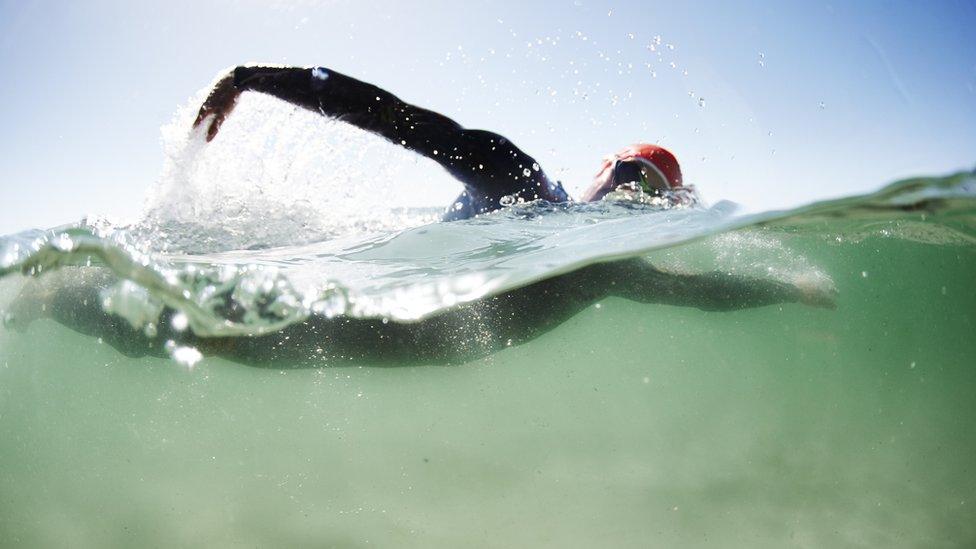
- Published13 September 2018
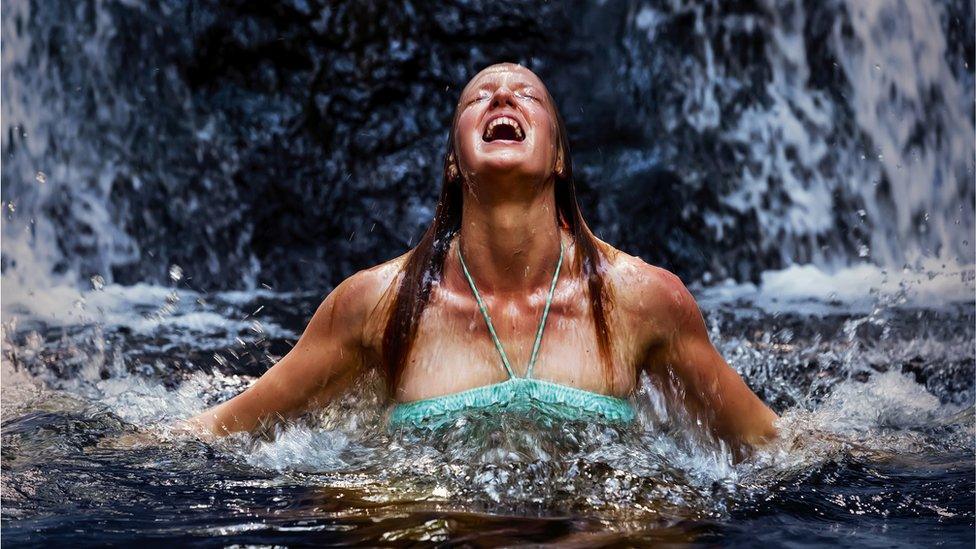
- Published19 October 2020
